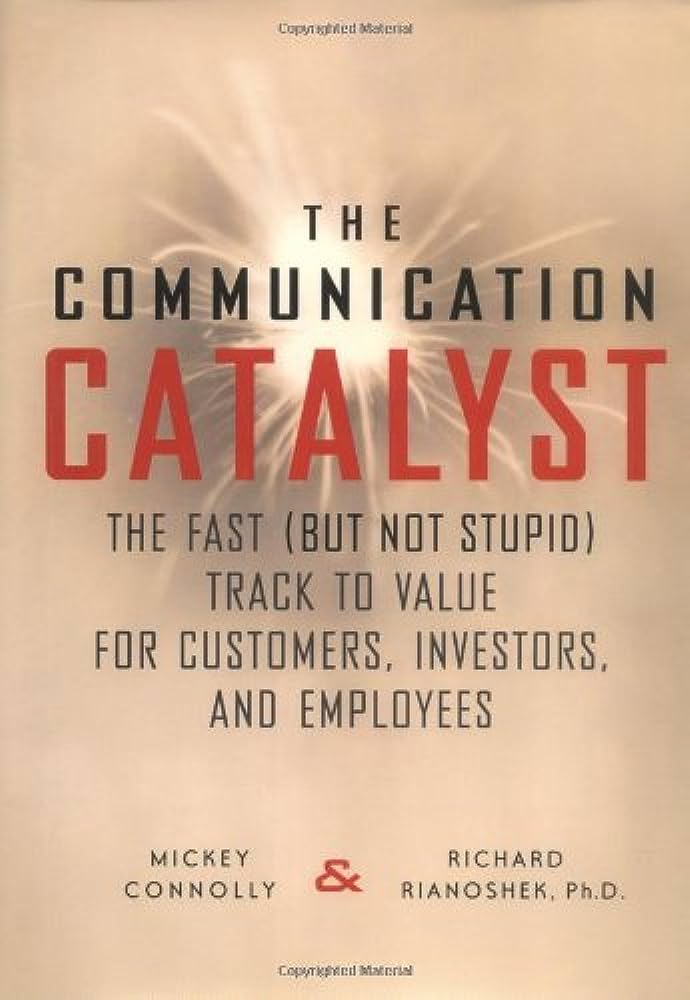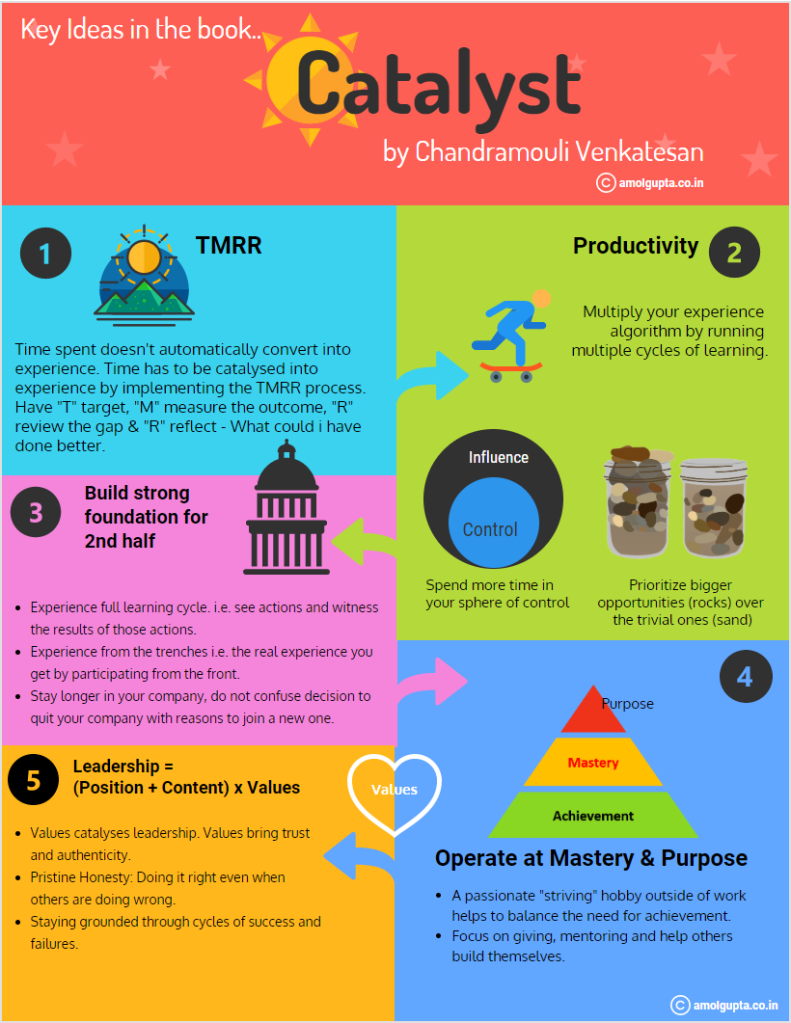Get ready to be inspired and motivated as you embark on a journey through the pages of the Catalyst Book Recap: Lessons, Stories, and Practical Examples with Motivational Insights. This captivating recap offers a wealth of knowledge, showcasing the valuable lessons learned, powerful stories shared, and an abundance of practical examples for readers to apply in their own lives. Dive into a world of thought-provoking quotes that will resonate deeply, while being exposed to a myriad of real-life scenarios that demonstrate these principles in action. Brace yourself for a rollercoaster of emotions as you uncover the transformative power of this book. And as you reach the end, be prepared to be armed with a series of motivational bullet points that will leave you feeling empowered and ready to conquer any challenge that comes your way. Get ready to embrace the Catalyst book recap and unlock your true potential.

Lesson 1: The Power of Perspective
Changing your mindset
One of the most powerful lessons we can learn is the importance of changing our mindset. Our mindset is the lens through which we view the world, and it can have a profound impact on our ability to overcome challenges and achieve success. When we shift our mindset from one of scarcity to one of abundance, we begin to see limitless possibilities instead of obstacles. By cultivating a positive and growth-oriented mindset, you can open yourself up to new opportunities and experiences.
Seeing obstacles as opportunities
In life, we often encounter obstacles that can seem insurmountable. However, it is our perspective that ultimately determines whether these obstacles become roadblocks or stepping stones. Instead of viewing obstacles as barriers to our success, we can train ourselves to see them as opportunities for growth and learning. By reframing challenges as chances to develop new skills, expand our knowledge, and build resilience, we can overcome hurdles with grace and perseverance.
Learning from failure
Failure is an inevitable part of life, but it is how we respond to failure that truly matters. Instead of letting failure discourage you, use it as an opportunity for growth and self-improvement. Take the time to reflect on your failures and identify the lessons they offer. Failure can be a valuable teacher, providing you with important insights and guiding you towards success. Remember, every failure brings you one step closer to achieving your goals.
Lesson 2: Building Resilience
Developing a growth mindset
A growth mindset is the belief that our abilities and intelligence can be developed through dedication and hard work. When we embrace a growth mindset, we understand that our talents and skills can be cultivated over time, rather than being fixed traits. This mindset allows us to approach challenges with optimism and a willingness to learn. By fostering a growth mindset, you can develop the resilience needed to overcome obstacles and achieve your goals.
Embracing challenges
Without challenges, growth and progress would be impossible. Instead of shying away from difficult situations, embrace them as opportunities for personal and professional growth. Challenge yourself to step outside of your comfort zone and tackle tasks that push your limits. By embracing challenges, you will expand your skills, develop new strengths, and build resilience along the way.
Adapting to change
Change is a constant in life, and those who can adapt quickly are the ones who thrive. Instead of resisting change, embrace it as an opportunity for growth and transformation. Be open-minded and flexible, and seek out new perspectives and ideas. The more adaptable you become, the better equipped you will be to navigate the ever-changing landscape of life and seize new opportunities as they arise.

Lesson 3: Effective Communication
Active listening
Effective communication is not just about speaking, but also about listening. Active listening involves fully engaging with and understanding the person speaking. It means giving your full attention, asking questions for clarification, and summarizing what you have heard to ensure mutual understanding. By practicing active listening, you can build stronger relationships, enhance collaboration, and foster a culture of respect and understanding.
Non-verbal cues
Communication is not just about words; it also involves non-verbal cues such as body language, facial expressions, and tone of voice. Pay attention to these non-verbal signals, as they can often convey more meaning than words alone. By being aware of both verbal and non-verbal communication, you can better understand others and convey your own messages more effectively.
Empathy and understanding
Empathy is the ability to understand and share the feelings of another person. It is an essential skill for effective communication, as it allows us to connect on a deeper level and build stronger relationships. Practice empathy by putting yourself in someone else’s shoes and truly listening to their perspective. By showing empathy and understanding, you can create a more inclusive and supportive environment.
Lesson 4: Setting Goals and Taking Action
SMART goal-setting
Setting clear and specific goals is essential for success. SMART goals are those that are Specific, Measurable, Achievable, Relevant, and Time-bound. By setting SMART goals, you can provide yourself with a clear roadmap to success and measure your progress along the way. Take the time to define your goals and break them down into manageable steps. This will help you stay focused, motivated, and on track towards achieving your objectives.
Creating action plans
Setting goals is just the beginning; taking action is where the real progress happens. Once you have set your goals, create an action plan that outlines the steps you need to take to achieve them. Break down your goals into smaller tasks and assign deadlines to each one. By creating a detailed action plan, you can stay organized, motivated, and accountable as you work towards your goals.
Overcoming procrastination
Procrastination can be a major obstacle to achieving our goals. Instead of putting tasks off until later, take proactive steps to overcome procrastination. Break tasks into smaller, more manageable parts, set realistic deadlines, and hold yourself accountable. By taking action and making progress, you will build momentum and motivation to continue moving forward.

Lesson 5: Embracing Failure
Learning from mistakes
Failure is not a reflection of your worth or abilities; it is simply part of the journey towards success. When you experience failure, take the time to reflect on what went wrong and what lessons you can learn from it. Use failure as an opportunity to grow, adapt, and improve. Embrace a growth mindset that sees failure as a necessary stepping stone on the path to success.
Persevering through setbacks
Setbacks are inevitable, but it is how we respond to them that determines our ultimate success. When faced with setbacks, choose to persevere. Keep pushing forward, even when things get challenging. Remember that setbacks are not permanent; they are simply temporary obstacles that can be overcome with determination and resilience. Stay focused on your goals and never lose sight of the progress you have already made.
Using failure as motivation
Failure should not discourage you; it should motivate you to work harder and smarter. Use failure as fuel to propel you forward. Let it remind you of your strengths, your determination, and your resilience. Every failure is an opportunity to learn, grow, and improve. Embrace failure as a natural part of the learning process and use it as motivation to achieve even greater success.
Lesson 6: Building Positive Relationships
Effective networking
Building a strong network of relationships is a valuable asset in both personal and professional life. Effective networking involves building authentic connections, actively seeking opportunities to connect with others, and maintaining mutually beneficial relationships. Focus on building relationships based on trust, respect, and shared interests. By nurturing positive relationships, you can expand your knowledge, access new opportunities, and receive support in your journey to success.
Collaboration and teamwork
Success is rarely achieved alone; it often requires collaboration and teamwork. Developing strong collaborative skills is essential for building positive relationships and achieving common goals. Be open to working with others, value diverse perspectives, and contribute to the team’s success. By fostering a collaborative mindset, you can create a supportive and productive environment that leads to greater success for everyone involved.
Managing conflicts
Conflicts are an inevitable part of any relationship, but it is how we manage and resolve these conflicts that determines the strength of our relationships. When conflicts arise, approach them with open-mindedness and a willingness to find a solution that benefits everyone. Practice active listening, empathy, and effective communication to foster understanding and find common ground. By managing conflicts in a constructive and respectful manner, you can strengthen your relationships and foster a positive and supportive environment.

Lesson 7: Time Management and Prioritization
Identifying priorities
Time is a finite resource, so it is crucial to identify and prioritize tasks that align with your goals and values. Take the time to evaluate your priorities and determine what is most important to you. By focusing on high-priority tasks and eliminating or delegating lower-priority ones, you can make the most of your time and ensure that you are working towards your goals effectively.
Creating a schedule
Creating a schedule is an effective way to manage your time and ensure that you are allocating it wisely. Break your day into blocks of time and assign specific tasks to each block. Be realistic about how long tasks will take and build in buffers to accommodate unexpected interruptions or delays. By following a schedule, you can stay organized, focused, and productive throughout the day.
Avoiding multitasking
While multitasking may seem like a way to get more done in less time, research has shown that it actually decreases productivity and impairs cognitive function. Instead of trying to juggle multiple tasks at once, focus on one task at a time and give it your full attention. By eliminating distractions and practicing single-tasking, you can improve focus, efficiency, and the quality of your work.
Lesson 8: Emotional Intelligence
Self-awareness
Self-awareness is the foundation of emotional intelligence. It involves understanding your own emotions, strengths, weaknesses, and values. By developing self-awareness, you can better understand how your emotions and actions impact yourself and those around you. Take the time to reflect on your thoughts, feelings, and behaviors, and work towards aligning them with your goals and values.
Self-regulation
Emotional self-regulation is the ability to manage and control your emotions in a healthy and productive manner. It involves recognizing and understanding your emotions, and responding to them in a way that is appropriate and beneficial. Practice techniques such as deep breathing, mindfulness, and positive self-talk to regulate your emotions and maintain a calm and focused mindset.
Empathy and social skills
Empathy is the ability to understand and share the feelings of others. It is a key component of emotional intelligence and essential for building positive relationships. Cultivate empathy by actively listening to others, putting yourself in their shoes, and seeking to understand their perspective. In addition, develop strong social skills by effectively communicating, resolving conflicts, and building meaningful connections with others.

Lesson 9: Leadership and Influence
Leading by example
Leadership is not just about giving orders; it is about inspiring and influencing others through your actions. Lead by example by consistently demonstrating the qualities and values you want to see in others. Show integrity, accountability, and a strong work ethic. By leading by example, you can inspire others to follow your lead and create positive change.
Inspiring and motivating others
A great leader is not only able to motivate themselves but also inspire and motivate others. Find ways to encourage and uplift those around you. Recognize and celebrate the achievements of others, provide constructive feedback, and offer support and encouragement. By inspiring and motivating others, you create a positive and empowering environment that fosters growth and success.
Effective decision-making
Leaders are often faced with tough decisions, and their ability to make effective decisions can greatly impact their success and the success of their team. Practice decision-making skills by gathering information, weighing options, considering different perspectives, and making a decision based on what is best for the team and the organization. By becoming a skilled decision-maker, you can lead with confidence and guide your team towards success.
Motivational Insights
In addition to the specific lessons discussed above, there are several key insights that can help motivate and guide you on your journey towards success:
Believe in your abilities
“Whether you think you can, or you think you can’t–you’re right.” – Henry Ford
Believing in your abilities is crucial for achieving success. Cultivate self-belief and develop confidence in your own capabilities. Remember that you have the power to overcome obstacles, achieve your goals, and make a positive impact.
Embrace challenges as growth opportunities
“Life begins at the end of your comfort zone.” – Neale Donald Walsch
Challenges are not meant to break you; they are meant to shape you. Embrace challenges as opportunities for growth and learning. Step out of your comfort zone and embrace the unknown. It is through challenges that you will discover your true potential.
Persevere in the face of adversity
“Success is not final, failure is not fatal: It is the courage to continue that counts.” – Winston Churchill
Adversity is a natural part of the journey towards success. When faced with setbacks or failures, remember to persevere. Keep going, even when it feels challenging. Your determination and resilience will carry you through the tough times and lead you to greater success.
Continuously learn and improve
“The only person you should try to be better than is the person you were yesterday.” – Unknown
Never stop learning and growing. Seek out opportunities to learn new skills, acquire knowledge, and expand your horizons. Embrace a growth mindset and commit to continuous improvement. Remember that success is not a destination; it is a lifelong journey.
Inspire and empower others
“Success is not measured by what you accomplish, but by the legacy you leave behind.” – Unknown
True success is not just about personal achievements; it is about inspiring and empowering others to achieve their own greatness. Be a positive influence in the lives of others, share your knowledge and experiences, and lift others up along the way. Your impact on others can be the greatest measure of your success.


